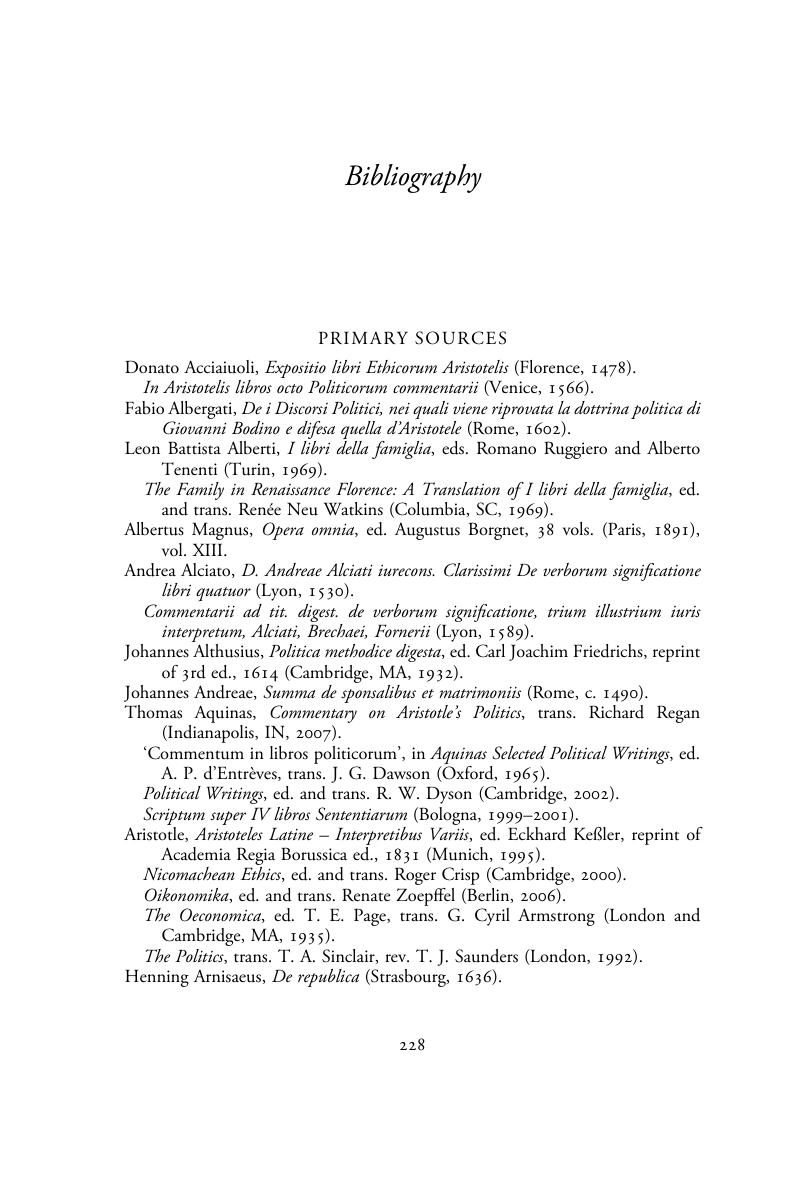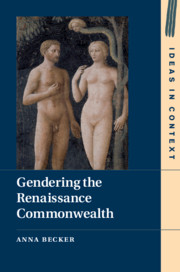Book contents
- Gendering the Renaissance Commonwealth
- Ideas in Context
- Gendering the Renaissance Commonwealth
- Copyright page
- Contents
- Acknowledgements
- Note on the Text
- Introduction
- Chapter 1 The Civic and the Domestic in Aristotelian Thought
- Chapter 2 Friendship, Concord, and Machiavellian Subversion
- Chapter 3 Jean Bodin and the Politics of the Family
- Chapter 4 Inclusions and Exclusions
- Chapter 5 Sovereign Men and Subjugated Women
- Conclusion
- Bibliography
- Index
- Ideas in Context
- References
Bibliography
Published online by Cambridge University Press: 15 December 2019
- Gendering the Renaissance Commonwealth
- Ideas in Context
- Gendering the Renaissance Commonwealth
- Copyright page
- Contents
- Acknowledgements
- Note on the Text
- Introduction
- Chapter 1 The Civic and the Domestic in Aristotelian Thought
- Chapter 2 Friendship, Concord, and Machiavellian Subversion
- Chapter 3 Jean Bodin and the Politics of the Family
- Chapter 4 Inclusions and Exclusions
- Chapter 5 Sovereign Men and Subjugated Women
- Conclusion
- Bibliography
- Index
- Ideas in Context
- References
Summary

- Type
- Chapter
- Information
- Gendering the Renaissance Commonwealth , pp. 228 - 249Publisher: Cambridge University PressPrint publication year: 2020

